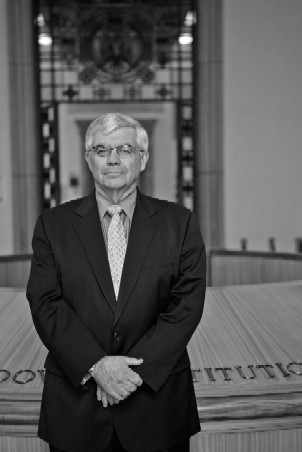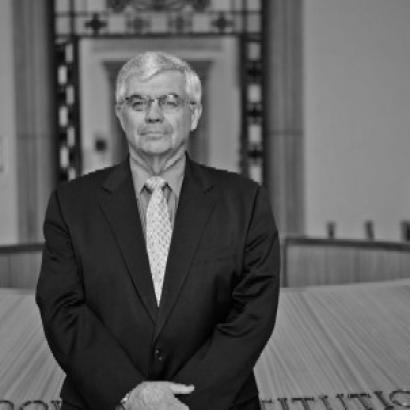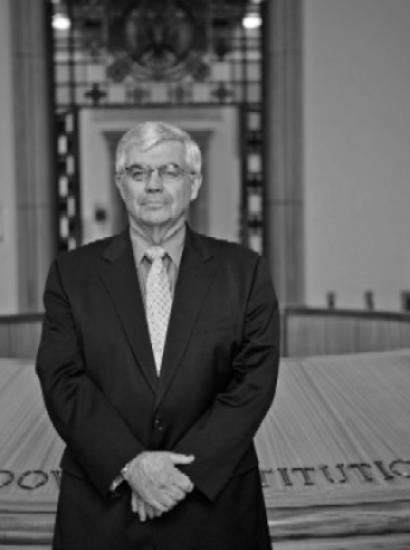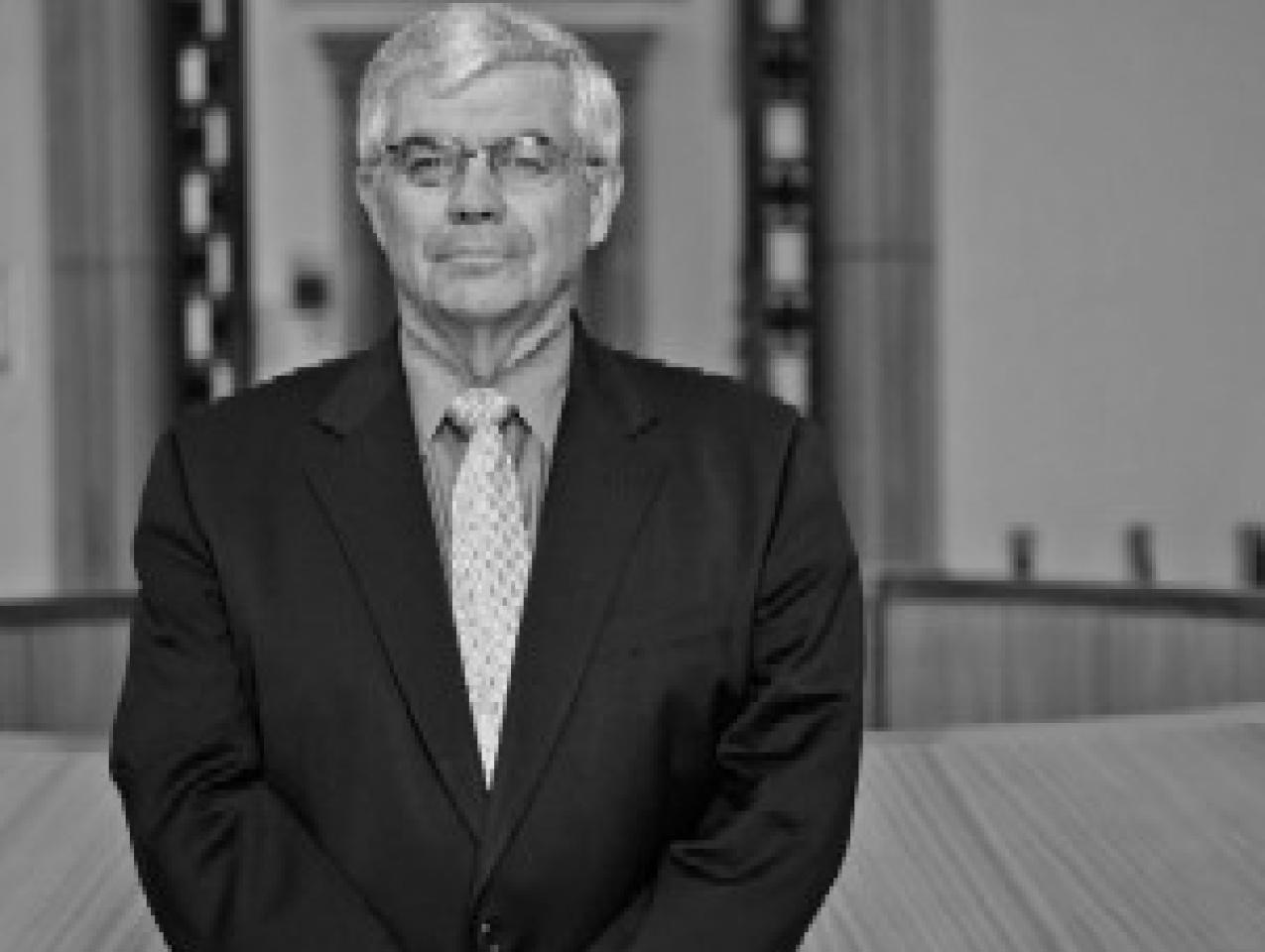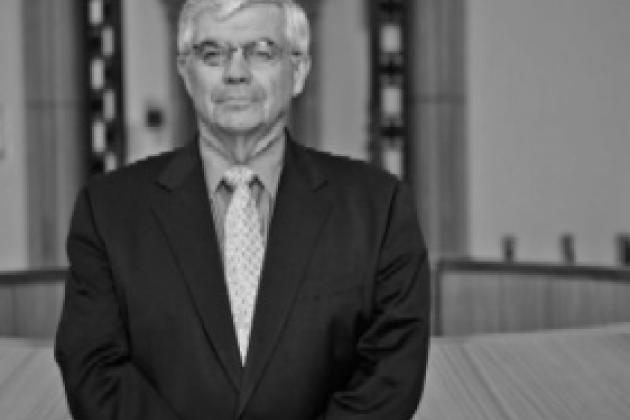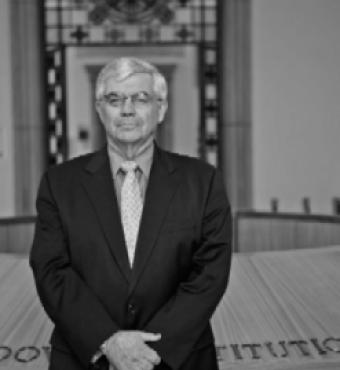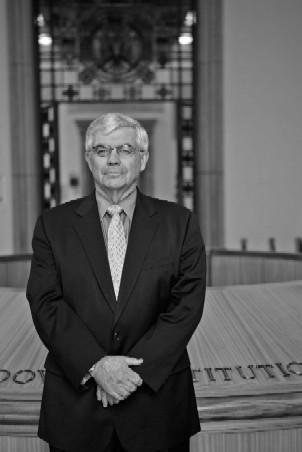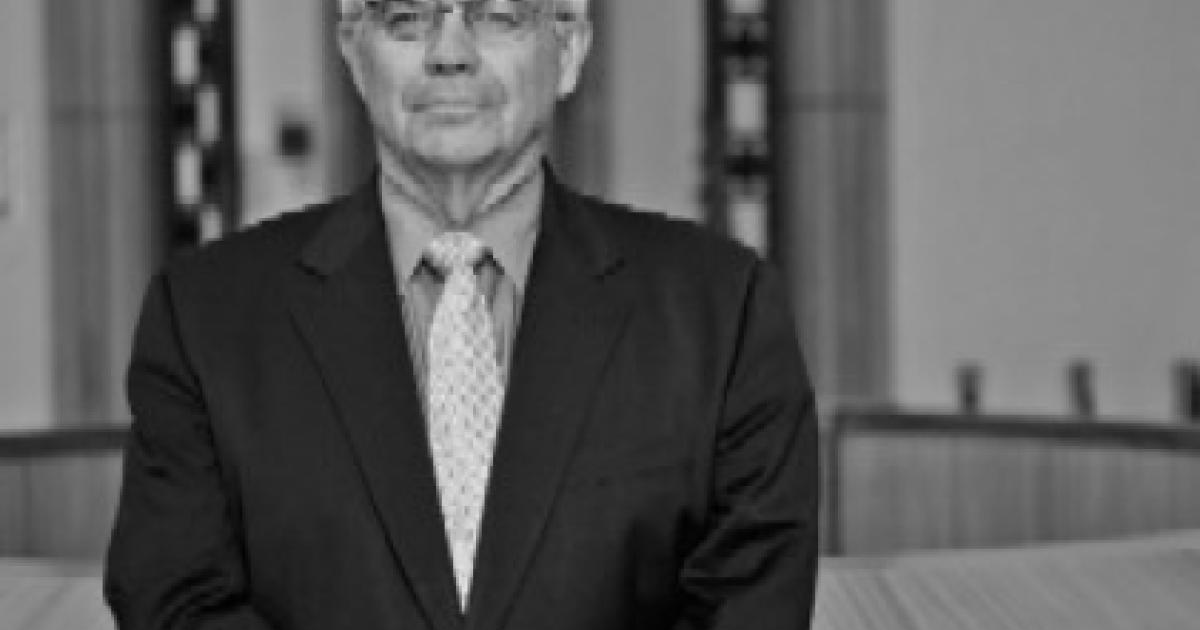- Economics
- World
- Economic
- History
In 1992, Stanford University economist John B. Taylor developed a simple equation that, using grade school math and only three variables, told the Federal Reserve what to do with respect to the federal funds rate. Taylor's formula not only described past Fed policy moves with startling precision, but also provided a systematic method for making future decisions. Ever since, scholars have been tweaking its coefficients, modifying its variables, and debating its function, but Taylor's rule has remained the gold standard, so to speak—open to doubt and subject to discretion but impossible to dismiss.
Taylor's experience and influence extend well beyond one powerful equation. Along with seminal monetary research, he has published pioneering work on rational expectations, wage and price dynamics, international monetary and fiscal policy, econometrics, and even the death penalty.
He's also worked in several presidential administrations, as economic adviser to Gerald Ford and George H.W. Bush and most recently as undersecretary for international affairs in the U.S. Treasury from 2001 to 2005, where his responsibilities ranged from currency policy to economic reconstruction in Afghanistan.
Taylor enjoys the classroom, as well, developing innovative teaching techniques that are models for Stanford curricula, and he knows how to curb daydreaming. In years past, he wore a raisin costume to his intro economics course and danced to “I Heard It through the Grapevine”—teaching an indelible lesson about agricultural supply and demand.
| Some people—Stanford students call them technies—are better at mathematics; others—Stanford students call them fuzzies—are better at history or philosophy. Understanding economics requires both. |
For Taylor, time in one sphere spurs productivity in others: Research finds light in college lectures; work in government stimulates research. Indeed, he developed the Taylor rule soon after returning to Stanford from the Council of Economic Advisers, where he liaised with the Fed. Back again from a Washington stint, he's now at work on a book about implementation of economic policy. “Economic research,” Taylor has written, “is most exciting and productive when it is policy-driven.”
CHINA
Clement: As undersecretary of the Treasury, your portfolio included the United States' economic relationship to China and U.S. concerns about the peg of the yuan to the dollar. The Chinese government has loosened its peg somewhat—perhaps as a response to financial diplomacy. What's your sense of how much further China will move and how quickly?
Taylor: China's exchange rate will continue to move. The move in July 2005 was a first step, and it's continued to move since then gradually. From talking to the Chinese over the years, it's clear to me that that's where they wanted to go: to more flexibility. So I think there's no question the exchange rate will be more flexible over time.
To answer your question of how quickly, I don't know. To some extent, it depends on how rapidly the markets in China develop to handle a flexible exchange rate. The problem of exiting from a rate that's been fixed for so many years to a flexible rate is that there are really no markets around for price discovery to determine what the rate is or to hedge against risks.
So they need to develop this market, but there's not going to be a market if there's no movement in the exchange rate. So it's like a chicken-and-egg problem. Now that there's some flexibility, the market's starting to develop. As it develops more, they can have more flexibility, and the market will develop more. That's really what's happening.
Personally, I think they've handled this pretty well. It hasn't caused a lot of market turbulence. It's a smooth exit from a policy that many countries have had trouble exiting from. I also think the approach of the G7—the United States, Europe, Japan, and Canada—in bringing this about, as you say, through financial diplomacy, has worked well and deserves some credit.
It was not an effort to bash China. A more flexible exchange rate is important for the world economy, of course, but we always emphasized that this change was in China's interest because it would allow China to have a monetary policy that could focus on inflation as its economy became more sophisticated financially. It's a gradual change because that's the way to prevent turbulence and make things work smoothly.
Clement: There's also been movement toward reform of the banking system in China. Are you concerned about the stability of China's banking system in light of its opening up to international competition and given its efforts to reform the system by reducing bad loans and inefficient management?
Taylor: I think that opening it up to the international economy in its deliberative way is very, very beneficial to China. There's improved technology, lots of things that foreign banks can bring into China that will help it modernize the banking sector. Competition, too, should be very helpful in financial services, just like any other sector.
But the nonperforming loan problem is something that they still have to deal with, and it's not going away very fast. I don't think the flexible exchange rate interferes with that. I think they've got to do both to have a modern financial system.
THE INTERNATIONAL MONETARY FUND
Clement: A few months ago, Mervyn King [governor of the Bank of England] gave a speech in India in which he called for a rather radical overhaul of the IMF, saying that if such an overhaul didn't take place, the IMF would “slip into obscurity.” Working with the IMF and pushing for reform was, again, part of your brief as undersecretary. Do you agree with King's assessment? What changes need to be made?
Taylor: Unfortunately, I haven't seen his piece, but I worked with him a lot on the reforms that we put through. It's important first, before you think about reforms going forward, to note what's happened recently at the IMF. And I think there have been some good reforms.
Actually, these recent reforms have analogies with monetary policy rules. In a book I'm writing right now, I have a chapter called “New Rules for the IMF.” The idea is that one of the problems with the IMF was that there was too little systematic behavior. Will it bail out a country or won't it? When will it? Which country? On what does it depend?
| One of the problems with the IMF prior to much-needed reforms was that there was too little systematic behavior. Will it bail out a country or won't it? When will it? Which country? On what does it depend? |
The lack of systematic behavior has led to lots of uncertainty in the markets. I think it was one of the reasons we had so much contagion in the 1990s. When the crisis in Russia hit, nobody knew what the reaction of the IMF would be, but it turned out to be a surprise change from earlier policies used in other parts of the world, which was one of the reasons that the crisis spread. One of the more important recent reforms has been to put some more rules on the IMF. Now there are limits that it has to adhere to in providing large-scale assistance to countries that are near crisis.
Bringing about this reform took a lot of work. These are international institutions with many players. And there had to be parallel reform of the sovereign debt markets, making the bonds much different than they were in the past. They now have particular clauses called “collective action clauses” that describe what happens if a country is near debt default. That's added much more predictability to the way bond markets work and has enabled the IMF to be more rule-like or systematic.
So I think that's a very important reform. In fact, I think it's one of the reasons we haven't had any emerging market crises now for quite a while. It's really an amazing thing. Also, yield spreads are down on emerging markets' government bonds [suggesting that perceived risk is lower] and capital flows are up to emerging markets. And I think that's one of the reasons people are saying, “What's the IMF doing? Is it going into obscurity?” Well, it doesn't have to do much now because, fortunately, these crises have diminished. As a result, we are moving into a period where people are wondering what the IMF is for.
Clement: The IMF bailout of Argentina occurred before these rules were
in place?
Taylor: Right. These new rules really began to be developed in 2001 or 2002. It took about a year to implement them. So they actually were not put in place until February 2003; since then, there have been no new large-scale rescues of any kind. And I think the nature of the markets has changed, in part, as a result of the new rules.
COMMUNICATION
Clement: You have given countless speeches, hundreds of lectures, written several textbooks, developed online courses. You've even dressed up as a raisin, I understand, to teach economics to undergrads here at Stanford.
Taylor: [Laughter] Yes. Right. That's true.
Clement: In the last few years, you've been educating politicians about economic policy, and now you've returned to Stanford to teach—are you still teaching intro economics?
Taylor: This quarter I taught a course on international finance, closer to my recent job, for juniors and seniors who have already taken intro economics. But I'm sure I'll come back to teaching introductory economics at some point.
Clement: Through all of these efforts, what have you learned about communicating economics to noneconomists?
Taylor: There are very important principles that one can communicate that don't involve high-powered analysis, and you can communicate those principles in simple terms. You don't want to oversimplify, but my experience is that you can explain things to people if they're willing to learn and if you take the time to listen to their questions and see where more explanation is needed. I've never been reluctant to mix entertainment with teaching, if it helps students understand or remember, which is where the raisin story comes from.
What I've always found fascinating about teaching, quite frankly, is how to communicate ideas that can be very complicated at a level that doesn't require a lot of prior training. You have to respect people's basic intelligence and their ability to analyze in different ways and, of course, be patient. Some people—Stanford students call them techies—are better at mathematics; others—Stanford students call them fuzzies—are better at history or philosophy. Understanding economics requires both, and it helps to explain this to students. That's what I have learned about communicating economics.
But in some sense, my job over the last four years was a little less about communicating the ideas, although that was important. It was really more about implementing ideas. An example: the Taylor rule is an idea. To implement it, central banks had to look at it and do various things. I didn't have much to do with implementing that idea.
| Ideas are what we do at think tanks, research departments, and universities. But the implementation of ideas is what you do when you're making policy. I miss implementation. It is both rewarding to contibute to public policy and intellectually challenging. |
By contrast, my job in Washington in the Bush administration was mostly implementing ideas. Part of that is communicating, of course, because you want to explain the idea to people. But in addition, there's forming a coalition to support the idea. There's debating with people who have other ideas, and they're always there in a democracy. There are negotiations. Internationally, you've got coalitions of countries to think about, not just within our country. And then you've got to compromise.
I find all of that fascinating from the point of view of policymaking. But the idea and communicating the idea are just the first part of that whole series of steps you've got to go through to get something done. I'm very interested in the other steps now because I think many people don't realize what that's all about. It's a fascinating process and one that I think could be done better.
IRAQ
Clement: Thinking about international work, some of the most arduous efforts you have undertaken were in Iraq, where you helped to reestablish the central bank. How do you go into countries where the financial infrastructure has been torn apart and begin to rebuild? And are you optimistic?
Taylor: Oh, yes, I'm optimistic about both Iraq and Afghanistan, where I also worked to rebuild financial systems. I think the progress made on the financial side in Iraq was unbelievable. It was amazing how successfully it all went. A whole new currency was put in place in just a matter of months. A new central bank was established; central banking law was developed. There was no financial chaos, which was really a major concern when the Saddam government fell. We prepared for months in advance.
So I think the way I would answer your question is just to be prepared and have some plans that you've worked out even though you don't know precisely what the circumstances will be. This is a management and leadership question. We had to have knowledgeable people on the ground who could talk to the career people in the central bank or the finance ministry after the government fell. Brave people, experienced people, they have to know to report back to Washington if there are changes in the plans. We set up what I called a “reach-back” operation in Washington to provide that capacity. You also have to have communication up through the chain of command in Washington. And you need the best experts you can find.
| The progress made on the financial side in Iraq was unbelievable. A whole new currency was put in place in just a matter of months. A new central bank was established. Central banking law was developed. |
And good, basic monetary theory came into play. How much of the new currency are people going to demand? How much new currency needs to be printed? And how fast would it be printed? We had to print so much currency that it took 27 huge planeloads to fly it into Iraq. It was printed at seven locations around the world. And then it had to be shipped to 250 distribution points around the country.
Clement: A huge helicopter drop of money.
Taylor: It was indeed. It was much more than an economic issue. It was also a security issue and a logistic issue. You have to assemble all the things you need to run an organization, keep it running like clockwork, and even then things can go wrong. I was just so thankful that nothing went wrong in the currency exchange.
WASHINGTON
Clement: Do you miss Washington? The high level of policy engagement and international travel? What are the benefits of being back in academe?
Taylor: Well, the benefit is being given a chance to think about things for more than five minutes. Being able to get back into, if you like, more in-depth thinking about policy. I didn't have time for that really. That's something I enjoy a lot about coming back from doing work in Washington.
This is not my first time coming back, of course. And each time I have renewed respect for thinkers and idea people because it is very difficult. You don't have all the external stimulus: What should we do today because of this event or that event? It's almost all internally generated. So researchers at think tanks, at research departments of the Fed, or at universities have a difficult job, and to do it well is very hard. When I come back, I always think it's more difficult than going into government. Working in the world of ideas is a difficult job to do well, but I've always enjoyed it.
In fact, my experiences in government have been useful for my research. The Taylor rule can be traced to such an experience. In the first Bush administration, part of my job was to liaise with the Fed, so it was in my mind that something like a systematic rule would be useful. And when I worked in the mid-1970s at the CEA [the president's Council of Economic Advisers], I saw the usefulness of having some models of wage determination and staggered price setting. So government experience has always been useful for me in my research.
That's all the good part about coming back. But missing it? Yes. I enjoyed, if you like, running things. I enjoyed that. I enjoyed trying to figure out, “How do we solve this problem?” It goes back to what I said about ideas and implementation of ideas. Ideas are what we do at think tanks, research departments, and universities. But the implementation of ideas is what you do when you're making policy. And I find that fascinating. One of the things that I'd like to do now that I'm back is try to write about that part of the job, the implementation—it's partly management, partly forming coalitions, political compromise, and so on. I miss that because it is both rewarding to contribute to public policy and intellectually challenging. The implementation is as much of an intellectual challenge as developing the ideas themselves.
The content of this article is only available in the print edition.






